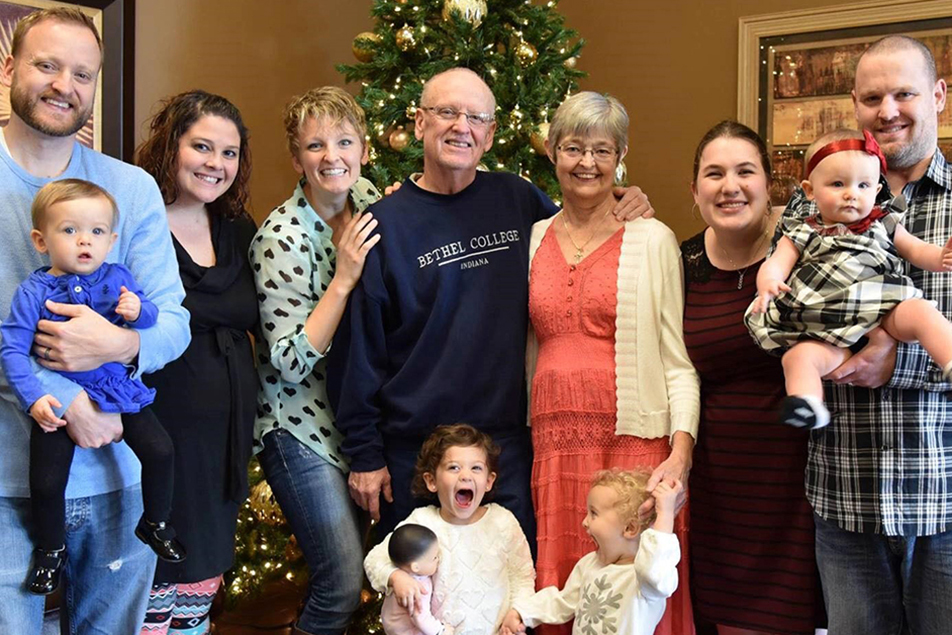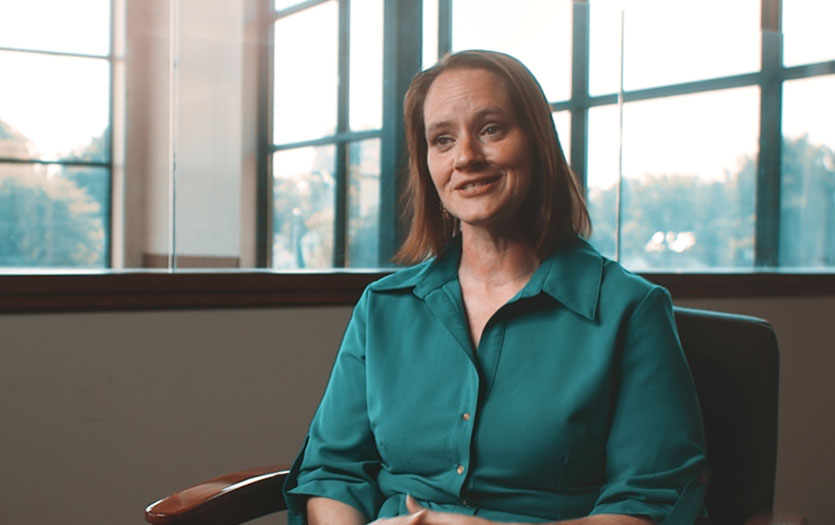
Since 1998, February 14 has been recognized as National Donor Day to raise awareness for organ, eye, tissue, marrow, platelet and blood donation. At any given moment, approximately 123,000 people are waiting for an organ donation. When asked about this special observance, Michael GeRue, chief operating officer, Parkview Heart Institute, pointed us toward this quote:
“By becoming an organ donor, one person can save the lives of up to eight people and improve the lives of dozens — mothers and daughters, fathers and sons, brothers and sisters — who are desperately in need of a transplant.” – Barack Obama
Sadly, approximately 18 people die each day while waiting for a transplant and only about 45 percent of Americans are registered donors. The power of this selfless act is demonstrated in the stories and faces of those who’ve been fortunate enough to make it successfully off the waiting list. People like Gwenn Roberts. Gwenn, who currently works in the Client Response Center at the Laboratory, has been a member of the Parkview team for more than 20 years. On December 1, 2016, she celebrated the four-year anniversary of her double lung transplant. Here, she shares her story ...
DASHBOARD: What was the catalyst for your transplant?
GWENN: I was diagnosed with pulmonary fibrosis. There’s no cure, and it just gets progressively worse. At the time of my transplant, I had been on oxygen for about a year. I was still working, and drug three oxygen tanks with me to work every single day since I couldn’t walk more than four or five feet at a time without needing oxygen.
DASHBOARD: How did you feel while waiting for your transplant?
GWENN: I actually only had about 27 hours between being put on the list and then receiving a call that they had found a match for me. I didn’t have that enormous wait period that a lot of people experience, which was definitely a blessing.
DASHBOARD: What do you remember about the day of the transplant?
GWENN: The whole thing happened so quickly, I was still in shock. I didn’t have time to really feel nervous about it. There was a little uneasiness that comes with any surgery, and nervousness about the uncertainty of the situation, but my whole family came and was with me before surgery.
DASHBOARD: Did you connect with your donor’s family?
GWENN: I was able to connect with them, and have exchanged emails with my donor’s mother specifically. I feel such sympathy for her. Because of her child’s donation, I was able to live long enough to see my first grandchild, and then three more after that. We haven’t met yet. I don’t think she’s ready for that yet, but she’s open to it happening someday. She told me some things about her daughter — what kind of person she was, what she liked to do. I keep a picture of her in my living room. I feel incredibly fortunate, because a lot of people reach out to their donor’s family and receive no response.
DASHBOARD: What would you tell someone who is considering being an organ donor?
GWENN: It’s an incredible opportunity to give. You will help someone have a better life, or a life at all. Knowing the good that can come out of a terrible situation through an act of giving can give you peace. It’s difficult for families to see past the immediate tragedy and think about how their loved one can leave a legacy through organ donation. It’s difficult for people to think about their daughter’s heart being in another person. But it will give someone the chance of a new life — whether it’s someone who’s been spending every day hooked to a machine, or someone who spends every day not knowing if it’s the day their organ could completely fail. There’s a shortage of donors right now, so I would absolutely encourage everyone to consider being an organ donor.
If you’re interested in becoming an organ donor, visit organdonor.gov, or select “yes” to organ donation when receiving or renewing your driver’s license.



